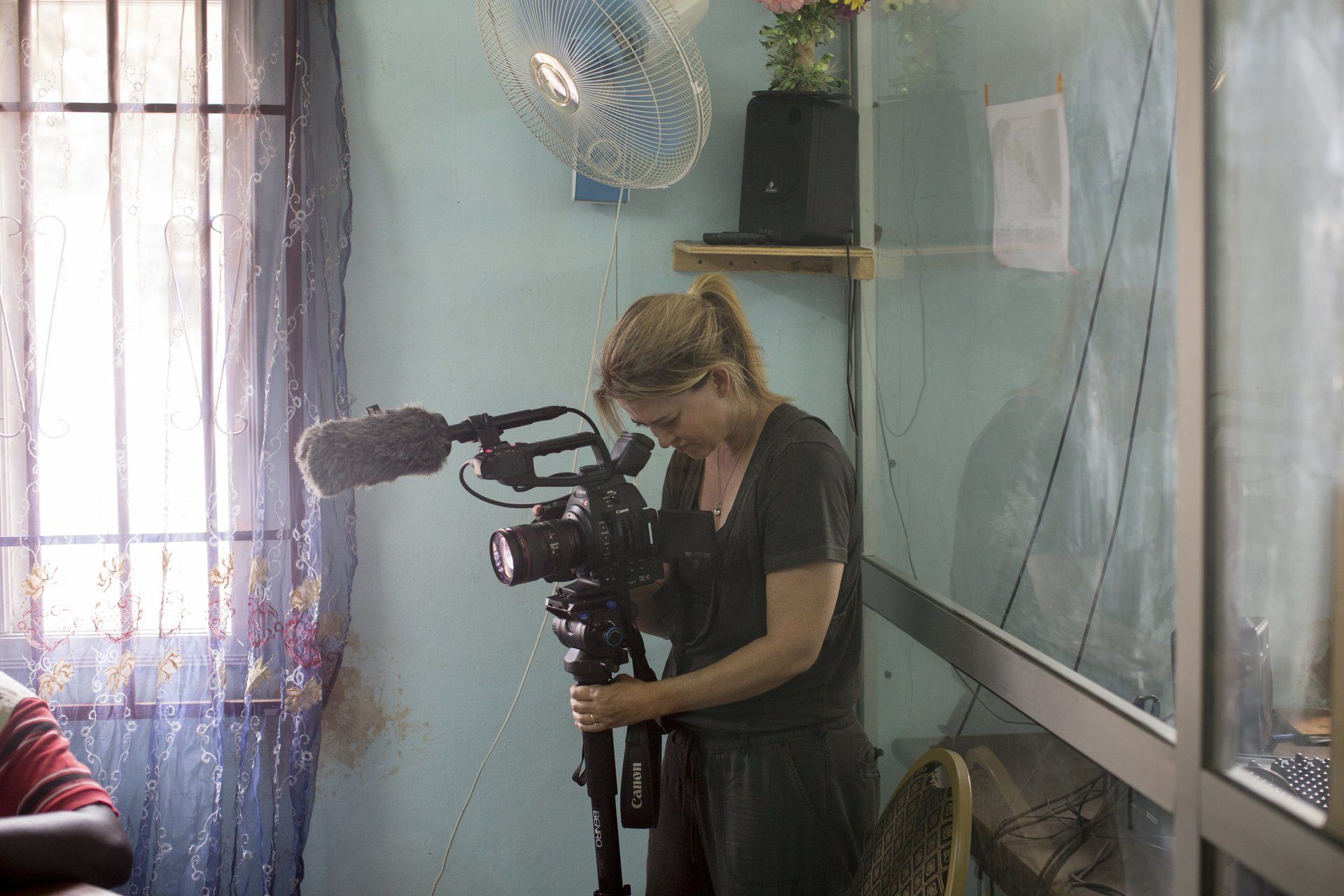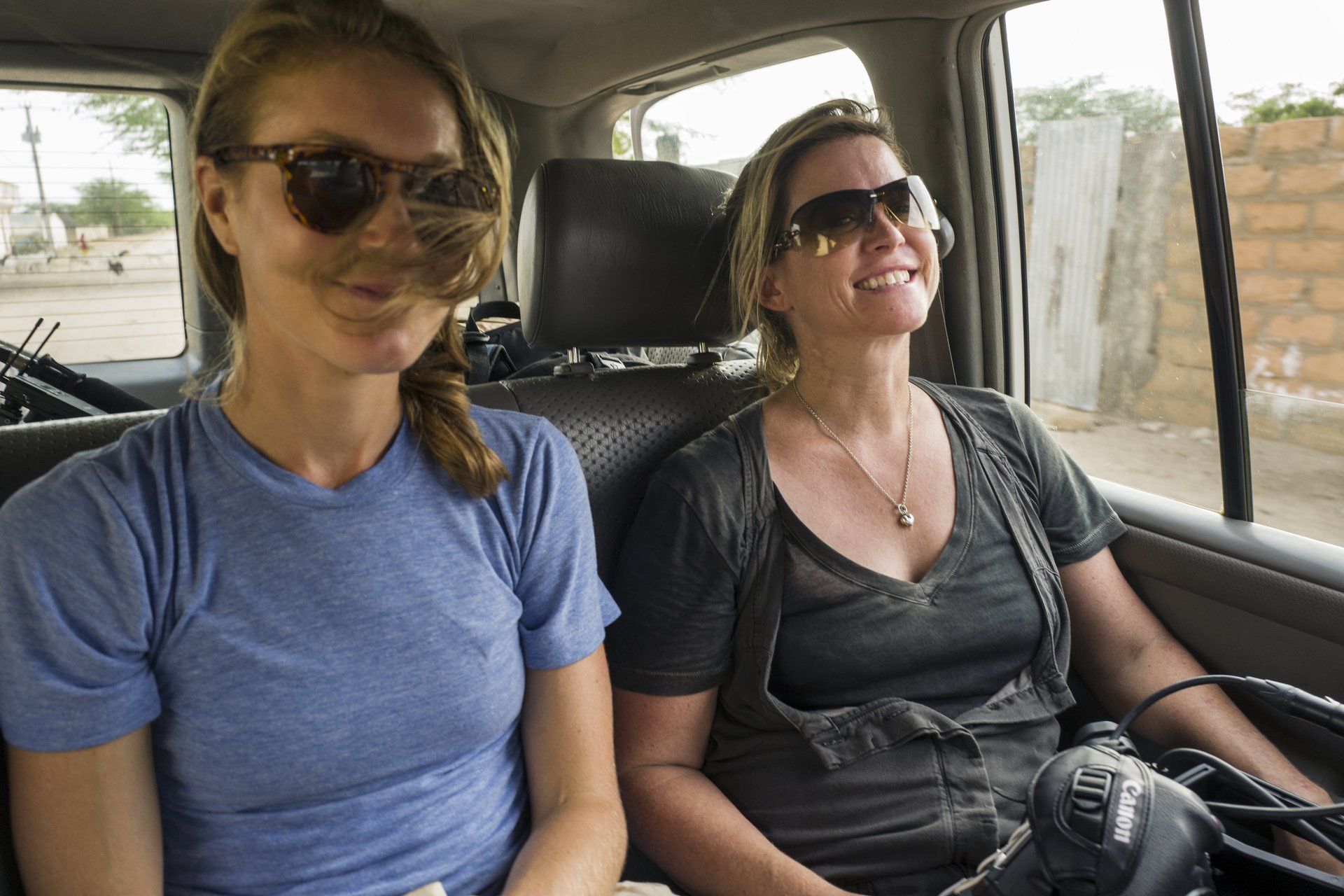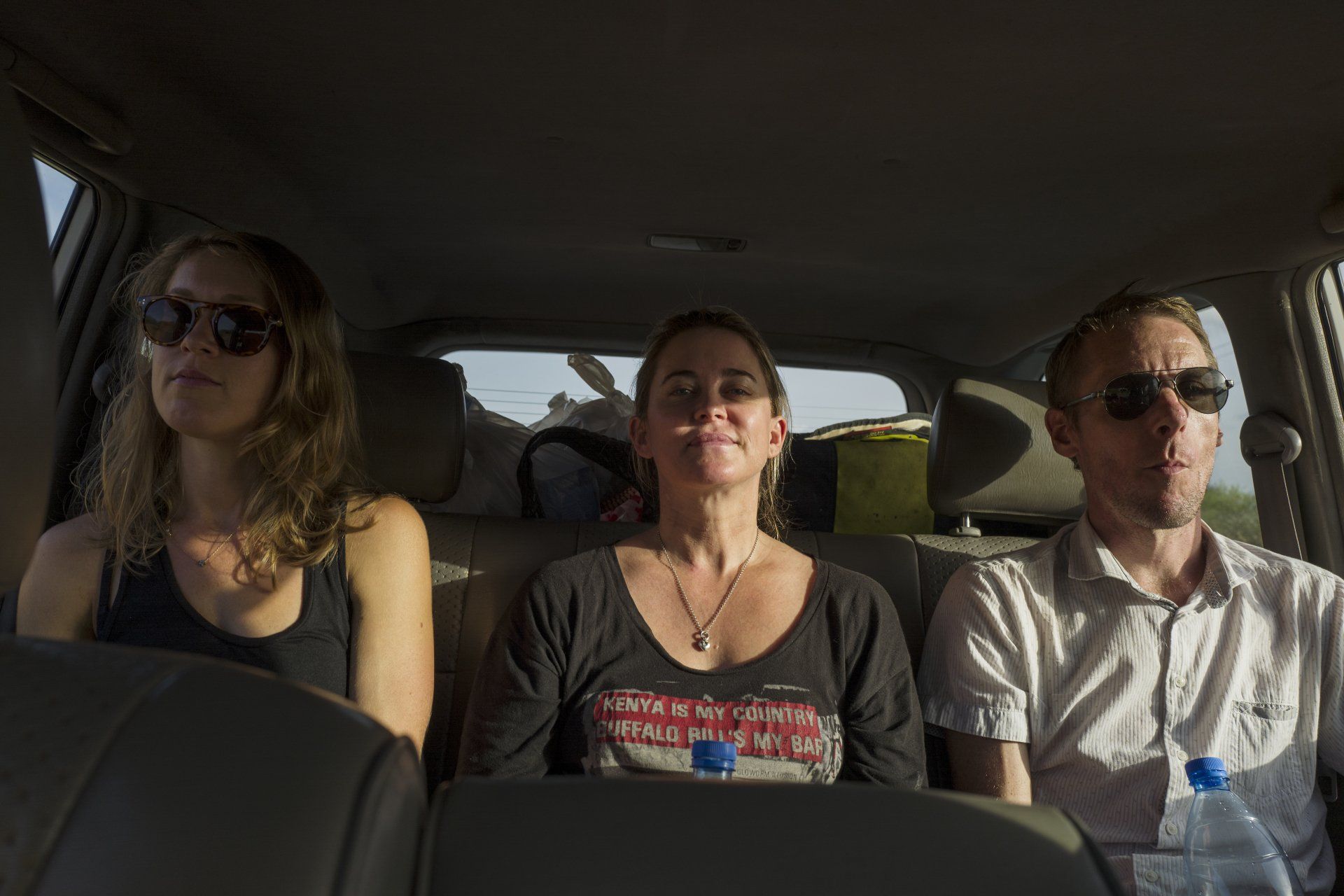Potou, Senegal— Blue Chip Foundation founder Jennifer Gross and VII Association filmmaker Danny Wilcox Frazier visited Potou to document the Millennium Villages Project’s progress in the in August, focusing on a cluster of six villages in Senegal’s Niayes Zone. Gross’s group, which included Ousmane Mbaye and Nick Loomis of Millennium Promise and Gina Ackerman of the Earth Institute at Columbia University, was able to document tremendous progress within the area since the Millennium Villages Project began its interventions.
“We saw nothing but progress in Potou,” says Jennifer Gross. “They’re using genetically modified seeds to grow onions, and everybody we talked to was having crops come up three or four times a year instead of one or two. All of the onions are healthy, and they’re selling nationally on a wide scale now in Senegal. It was awesome.”
Poor sanitation, including household refuse and industrial waste products, have created significant health risks for Potou’s population. Access to healthcare has traditionally been a challenge, so Gross, Frazier and the rest of the team traveled through the area with a community health worker to evaluate the new standards MVP was helping villagers meet.
“I was impressed with the casual nature of the community health worker as she visited mothers’ homes. She was received in each household as a friend, and has probably been a friend to each of these women for years,” says Gross. “With a little bit of training, she can speak to each household about medical issues and receive a diagnosis and recommendation for treatment via SMS. It really is a brilliant intervention, and one that I hope will scale up nationally in Senegal.”
The group met 18-year- old Khady Seck, a recent transplant from her family village to her husband’s home in Leona. Seck, pregnant with her first child, refused a prenatal exam at the city’s health clinic to preserve her modesty. After community health workers gently explained how the life-saving exam could protect Seck and her child, she relented – a prime example of how community health workers are dramatically improving healthcare in rural regions across Africa and reducing child and maternal mortality rates.
Having access to public airwaves helps, too. Leona’s radio station zeroes in on programming designed to educate the community and raise awareness around important issues.
“We have found the right model,” said Prime Minister Abdoul Mbaye, during a visit to Potou. “Now we should think about extending it to other rural communities in Senegal.”
In addition to significant advances in information-sharing and healthcare, farming processes are improving and productivity has increased. Ousmane Faye and Mamadou Diop, two of the farmers Gross’s group documented, had seen a significant uptick in profits since MVP implemented assistance.
“The first farm in Gabar, Senegal, run by Ousmane Faye, operated through a solar irrigation system donated by Millennium Villages Project. He had earned so much money that he was able to send his children to secondary school, and his son was attending university in Dakar,” says Gross.
Diop operated two farms and was benefiting from the use of genetically modified seeds.
“Although it’s a controversial subject, the seeds have allowed Diop to produce three times what he normally has. His family is able to survive financially in seasons that normally wouldn’t produce viable crop,” says Frazier, adding that documenting Diop quickly became personal. “Filming him with his granddaughter during the harvest was one of the most touching and loving moments I had in Senegal. She was his pride and joy. She was his hope. It was beautiful.”
Gross, who’s partnering with VII Association for a documentary on the MVP’s African footprint, was continually impressed – both with what she saw in Potou and what the documentary crew was able to uncover: A tangible sense of what MVP meant to each villager whose lives it touched.
“Working with Danny Wilcox Frazier was intense. We immersed ourselves completely in the lives of the villagers there. We took meals with them, took naps on blankets in the sand in their yards, stayed in the onion fields during the hottest hours of the day, and discussed the most intimate details of their lives,” says Gross. “Normally, when I come to work in Africa, we spend a great deal of time deliberating about policy, strategizing on interventions, and speaking about statistics on the current state of affairs. To see these things actualized in homes and communities in Senegal was the fruit of my labor.”





